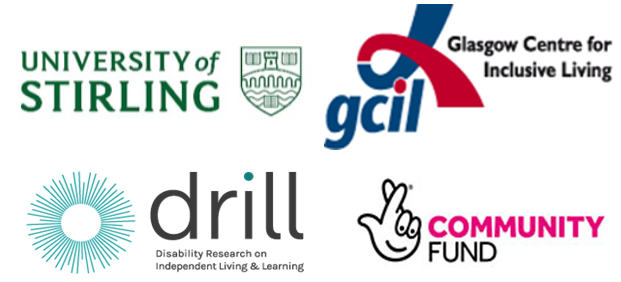The good self-directed support project is a research collaboration between the University of Stirling, Disability Research on Independent Living and Learning (DRILL); Glasgow Centre for Inclusive Living (GCIL), and the National Lottery Community Fund. In this blog post, Dr Siabhainn Russell sets out how stakeholders can get in involved.
For more than 20 years, local authorities across the UK have been developing and implementing schemes and support programmes for disabled people under various names. These include Direct Payments, Cash for Care, Consumer-directed Care, and Self-directed Support (SDS), which have often been categorised as being part the ‘personalisation agenda’. Through such programmes, governments across the world aim to shift the manner in which services are delivered to disabled people who require social care and other support. The objective is to allow disabled people to participate in daily life in a manner which gives individuals control of the financial aspects and the provision of the services they receive.
In the Scotland, Self-directed Support was formally introduced on 1st April, 2014, and emanated from the implementation of the Social Care (Self-directed Support) (Scotland), Act, 2013. This gives people receiving social care services in Scotland the right to have the choice, control and flexibility to meet their personal outcomes. In addition, local authorities are legally bound to a duty to ensure that clients are presented with a range of choices with regard to how they receive their social care and support package.
The good self-directed support project aims to understand what disabled
people think about their support: what works, and what doesn’t; how it could
promote genuine independent living and enable more disabled people’s and carers’
lives to be full of choices, opportunities and participation. The project seeks
to measure the benefits to families, friends, the community and society when
disabled people and carers have the right kind of support.
Getting involved
To better understand what ‘good support’ looks like, the project is looking for people who use Self-directed Support (SDS), or who would like to, and carers for people who use SDS, to participate in some focus groups. These focus groups would be formed of five or six individuals who would be invited to chat about their experiences of Self-directed Support.
The focus groups will last for no more than an hour and participants will be provided with expenses for travel along with any personal assistant, advocate and/or interpreter costs. Any information gathered via this process would be very valuable to the project. If you would like to take part, please visit: http://goodselfdirectedsupport.org.uk/
If you would like to find out more about SDS please visit:- http://www.selfdirectedsupportscotland.org.uk/
If you would like to discuss the research with someone, please contact:
- Professor Kirstein Rummery (Principal Investigator): kirstein.rummery@stir.ac.uk;
- Dr Siabhainn Russell (Researcher): siabhainn.russell@stir.ac.uk
- Julia Lawrence (Researcher): julia.lawrence@stir.ac.uk
If you would like to volunteer, you can also do so via telephone or text. Please contact Dr Siabhainn Russell on 07525435361 and leave your name, your telephone number and the name of the local authority area you live in.
If you wish to speak to someone independent about the project, please contact Professor Alison Bowes (Dean of the faculty of Social Sciences): a.m.bowes@stir.ac.uk

